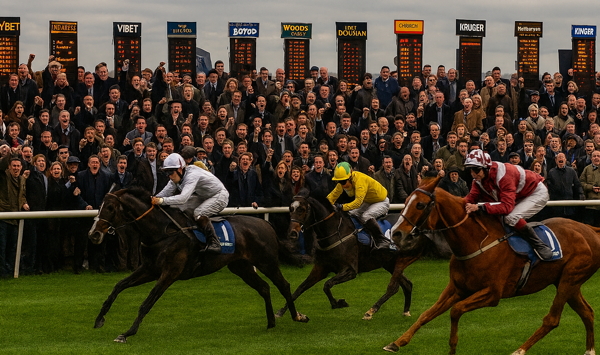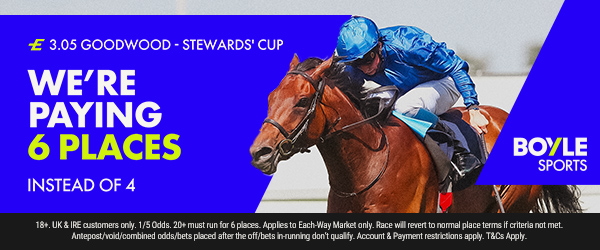 |
RacingBetter News |
| Thursday 9th October 2025 | |
Fixed Odds vs Pari-Mutuel: The Betting Divide Between UK and US Racing

Horse racing may share a familiar spirit on both sides of the Atlantic, but the way people bet on the sport reveals two very different cultures. In the United Kingdom, fixed-odds betting dominates—a system that provides clarity and certainty to punters before a race begins. In contrast, the United States largely adheres to the pari-mutuel model, where odds shift until the betting pool closes at post time. This fundamental difference has shaped not only the wagering experience but also the commercial structure and fan engagement of racing in both regions.
Understanding the Two Systems
To appreciate the divide, it helps to define each system clearly. Fixed-odds betting is straightforward: when you place a wager, you lock in the odds offered at that moment. If you back a horse at 5/1, that’s the payout rate regardless of how betting patterns change afterward. It’s a transparent contract between bettor and bookmaker—win or lose, both sides know the deal upfront.
Pari-mutuel betting, on the other hand, operates as a pooled system. All bets of a particular type (such as win, place, or show) go into a shared pool. After the track deducts taxes and commissions, the remaining pot is divided among those who picked the winning horse.
The odds displayed before the race are merely estimates that fluctuate as more money enters the pool. Bettors don’t know their exact payout until the race begins. While the mechanics may seem like minor details, the implications for player psychology, operator structure, and racing culture are far-reaching.
The UK: Tradition of Bookmakers and Certainty
In the UK, the fixed-odds model has been intertwined with the identity of horse racing for centuries. Bookmakers, whether on-course layers shouting odds from the rails or major online platforms offering horse betting online play a central role. They offer competition, adjust prices in real time, and give bettors the freedom to shop for the best value.
This system thrives on transparency and autonomy. British punters know precisely what they stand to win when they place their bets. The presence of competing bookmakers ensures that market forces naturally determine fair prices. For many, the appeal lies in this fixed commitment because it allows bettors to assess risk and reward with confidence, and to feel a personal victory when they’ve “beaten the book.”
Moreover, fixed odds have become part of British cultural life beyond racing. From football to tennis, bettors are accustomed to viewing odds as a promise rather than a projection. This consistency makes transitioning between sports seamless and contributes to the UK’s broader gambling economy.
The US: The Pool-Based Heritage of Pari-Mutuel
In the United States, pari-mutuel wagering was introduced in the early 20th century as a response to growing concerns over unregulated bookmaking. It was seen as a fairer, more controlled system that benefited the sport itself. Because the track takes a share from the total pool, racing operators, horse owners, and state commissions all receive a portion of the wagering turnover.
This collective model helped sustain racing in America, particularly at a time when state governments were wary of private bookmakers. It aligned the economic success of the track with the health of betting participation. Every dollar bet contributed to purses and operating costs, creating a symbiotic relationship between wagering and racing.
For bettors, though, pari-mutuel wagering introduces uncertainty. Odds can fluctuate dramatically in the minutes before a race. A horse might display 8/1 when you place your bet, only to drop to 3/1 as late money pours in. While some see this as part of the excitement, others find it frustrating, particularly in the age of real-time information where predictability is valued.
Cultural and Regulatory Factors
The divide between fixed odds and pari-mutuel systems is a product of law and culture. In the UK, licensed bookmakers have long been integral to the gambling ecosystem, competing openly and paying taxes on profits. In the US, private bookmaking was prohibited mainly outside of Nevada for most of the 20th century, making pari-mutuel pools the only legal framework for wagering on horse racing.
The difference in betting philosophies reflects broader societal attitudes. The British approach emphasises individual choice, market competition, and risk management. The American system leans toward communal betting and regulatory oversight. Both models aim to preserve integrity, but they do so through distinct means, one through the accountability of licensed bookmakers, the other through centralised control at the track.
The Future of the Divide
As global gambling markets evolve, the divide between the UK’s fixed-odds tradition and the US’s pari-mutuel heritage may narrow, but it’s unlikely to disappear entirely. Both systems have strengths rooted in their respective histories. The UK’s competitive bookmaker landscape provides accessibility and variety, while the US’s pool-based model ensures a direct financial link between wagering and the sport’s sustainability.
Ultimately, the difference between fixed odds and pari-mutuel betting reflects more than just numbers on a screen. It represents two philosophies of wagering: one grounded in personal agency and market dynamics, the other in shared participation and institutional stewardship. Both continue to shape how millions of fans experience the thrill of horse racing, each turn of the track reflecting a distinct cultural rhythm that defines the sport on either side of the Atlantic.







